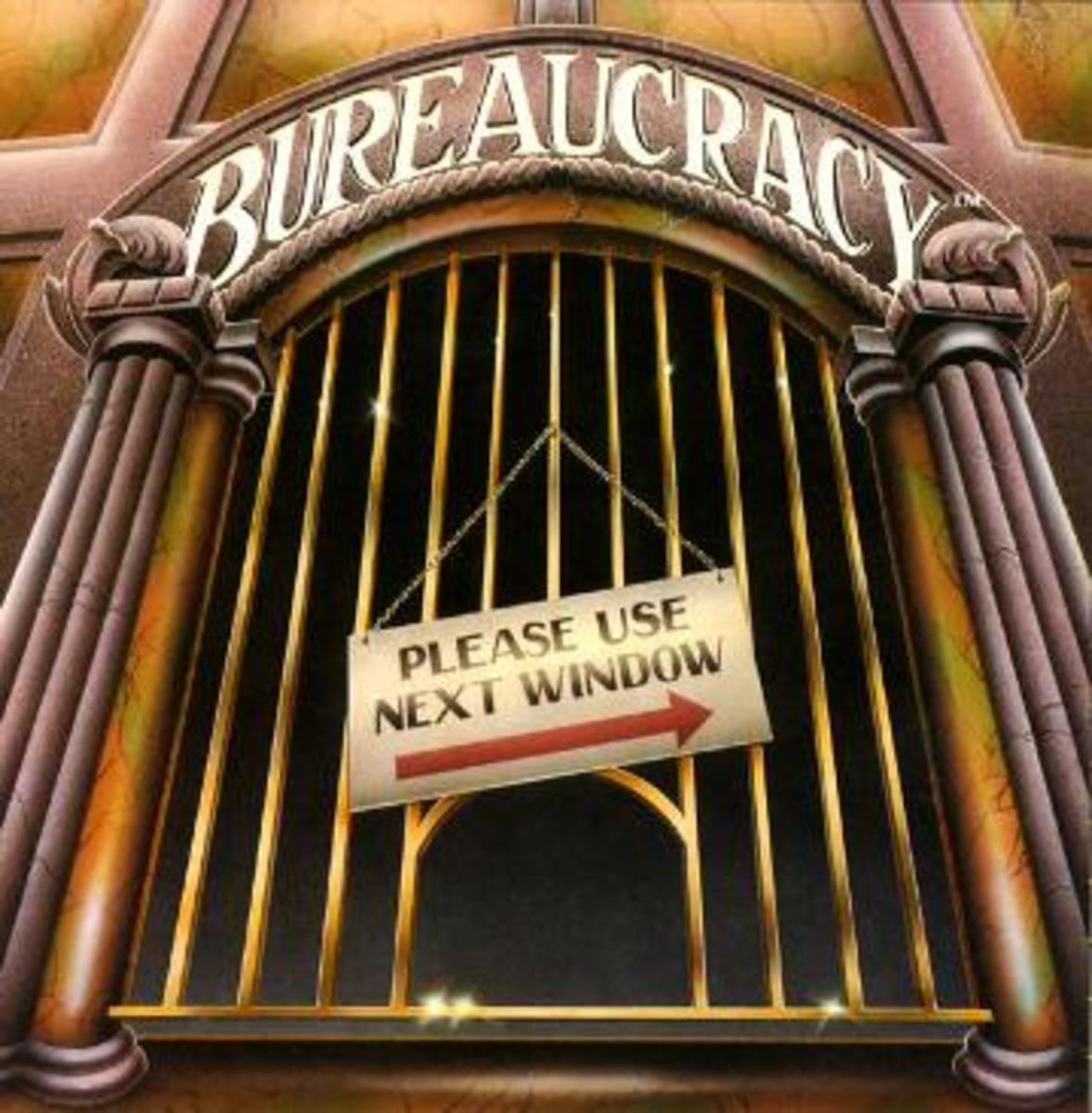An Alternative Approach to Health Care
Originally published February 2010 - At that time, there was a partisan divide over the health care bill and doubt regarding its constitutionality. The article, the article proposes support to research as an alternative.
Updated in July 2016 - The former Institute of Medicine has transformed to the National Academy of Medicine.
Background and Setting: The Genome Project
Most of us have heard of the Genome Project (www.genome.gov), the effort to identify the genome sequences in the human chromosome. All of the human chromosomes have been mapped. Some of us may have heard of the recent discoveries that are linking individual genes to various genetic disorders. Some may have heard that genetic treatments are being developed for those disorders, and that genetic testing is becoming available to support medical diagnosis and determine what course of medical treatment should be provided. One might conjecture based on these early achievements that the state of medical technology in 2010 was roughly equivalent to the state of computer technology in the late 1970’s and early 1980’s. If that conjecture is true then we can fully expect to see benefits to our overall health and life expectancy as these technologies mature.
This will have consequences, and will likely cause us to have to rethink our approaches to social security and social care, as well as health care.
Background and Setting: Advancing the Computer Technology (1980’s)
Most of us have heard of the major computer corporations Microsoft, Intel, and Dell. These companies were leaders in evolving the personal computer. The personal computers of the 1980's and 1990's were huge in size, and often regarded as monolithic. These computers were only available only to the privileged few.
These have evolved to the universally sleek desktops, laptops and hand-held devices of today.
How many remember the court battles that allowed those companies to go forward without government interference? If they had not won those battles, what would be the state of our computer technology today? Those battles allowed those companies to move forward and carry out the transformation from computing for the privileged few to computing for the masses. The progress in personal computing combined with the evolution of massive connectivity through the Internet allowed these advances to turn into the new social media that we use today. It is easy to believe that much of this would not have happened if it had been government run.
Certainly nobody had to contribute to support of a government run computer program at risk of being fined. We have Microsoft and the rest to thank for that.
YouTube - Explaining the Human Genome Project (from Lorraine Wegman)

Situation - 2010
The Genome Project has brought new discoveries, and the government has imposed a government mandated health care program.
The Genome Project brings a new understanding to medicine, but those understandings are still in their infancy's. Any technologies or results that are coming out will likely only be available to a privileged few in the near term. It is a long road to mature any new technology and we should have every expectation that it will be a few (or more) years before the benefits of the new technology are available to everyone. The National Academy of Medicine (formerly the Institute of Medicine) ( http://www.nam.edu) has initiated studies and published reports on how to leverage the work of the Genome Project.
The Affordable Health Care Act (HR3962) of years past contained no references that I could find to the genome project, or to maturing any new genome related technology to the point that is affordable to all. HR3962 does contain references to the Institute of Medicine (IOM). It directs (Sec 1159a) the Secretary of Health and Human Services to ‘to conduct a study on geographic variation and growth in volume and intensity of services in per capita health care spending among the Medicare, Medicaid, privately insured and uninsured populations.’ I think that means they want to know how many people seek care, and how their costs relate to their selected coverage and to the physician/patient elections for treatment. There does not appear to be anything related to providing incentives to leverage new discoveries for improving or lowering the costs of treatment or care.
Other things noted in HR3962:
- Sub-Title E., sec 241., a new Health Choices Administration in the Executive Branch
- Sub-Title F., sec 255., any part of this Act found to be unconstitutional doesn’t invalidate other parts of the Act (is this standard practice in Congress?)
- Sub-Title F., sec 256., exemptions for the Hawaii Prepaid Health Care Act
HR3962 passed the House and a modified plan was passed the Senate, both passing purely along partisan lines. Our executive at the time pressed forward with attempts to resolve the differences between the two bills, apparently in an attempt to get something passed before the upcoming elections at that time. Grass roots movements brought major changes to the seating in the House and Senate. The general feeling seems to be that, for purely political reasons, doing something is better than nothing. So, have we considered alternatives?
The bird in the photo had broken his wing back in 2010. The back yard is fenced in. This bird hopped around in the protection of the back yard for years. He (or she) was able to get by for years without any government intervention. The bird is gone, but the backyard now seems to be a safe haven for the occasional wild rabbit.
An Alternative: Mature the Medical Technology
In general, technological progress in any field reduces the cost of the technology and makes it more widely available as the technology matures. Accordingly, one alternative that should be considered with respect to improving health care should be to look at ways we can provide incentives for innovations related to improving health diagnostics, improving health treatments, and lowering medical cost. Results from the Genome Project have potential to help with the first two of these. Since we’ll need more people in the medical and health care field, provide incentives to those who seek to improve their medical training and education. In addition, encourage collaboration between medical researchers and health care providers with respect to bringing the new technologies into general usage.
In other words, promote the general Welfare of our citizens rather than provide for their general Welfare. This approach would be more consistent with our founding fathers choice of wording in the preamble to the Constitution of the United States.
Put more emphasis and funding to Reward and Protect Innovations in Medical Technologies in the same way that we do our defense technologies.
Effect on Social Security
One consequence of improved medical and health care is likely to be increased life expectancy. Accordingly, we should consider studies related to changing the current social security retirement benefit ages so that as life expectancy increases, so does the retirement age. The original assignment of retirement age was probably based on an expectation that retirees would have a limited life expectancy beyond retirement age, which would have limited the amount of taxpayer burden. When retirement age remains fixed while life expectancy increases, the amount of money spent by social security goes up. This will be funded by our children. It might be beneficial to consider tying retirement age to the ongoing mortality rates of any given age group. Any change in this area, pardon the pun, probably should be grandfathered in.
The change could be as simple as abiding by the guiding practice Vary Retirement Age as a percentage of Life Expectancy. In other words, if the general population is to live longer, then we should expect to work longer before we retire and become a burden to the other people who are working and paying taxes to help take care of us.
Opinion
As said at the start of this Hub, this article attempts to put an alternative out to invite other alternatives and promote discussion. I for one have concerns when anything gets passed in Congress that is clearly being passed based on partisan politics. That tells me that our representatives are more in touch with their party than they are with their people, and that our senators are more in touch with their party than they are with their State. I also have concern when a bill passes even though it contains clauses that seek to limit impact of any unconstitutional ruling against parts of the bill. That indicates to me that our representatives either do not care about its’ Constitutionality, or have no clue whether it is or is not Constitutional. In the end, if it is unconstitutional, the taxpayer will have to pay the extra cost for it to go through the process of being ruled unconstitutional.
Thoughts?
Prologue
Subsequent to this article the House and Senate began attaching to all bills an indication of how any new bill can be traced back to the relevant section of the U.S. Constitution. This allows those of us who only occasionally look at Bills to understand their perspective on why they have the authority to propose that particular bill.
Also after this article was originally published, several challenges to the Affordable HealthCare Act have gone through to the Supreme Court. These decisions essentially said the following:
- Fiscal penalties for not having Health Insurance are to be regarded as taxes.
- The wording of the law can be re-interpreted well after the fact. This essentially changes the old saying from "You have to pass the law before you can know what is it" to "You may never know for sure."








